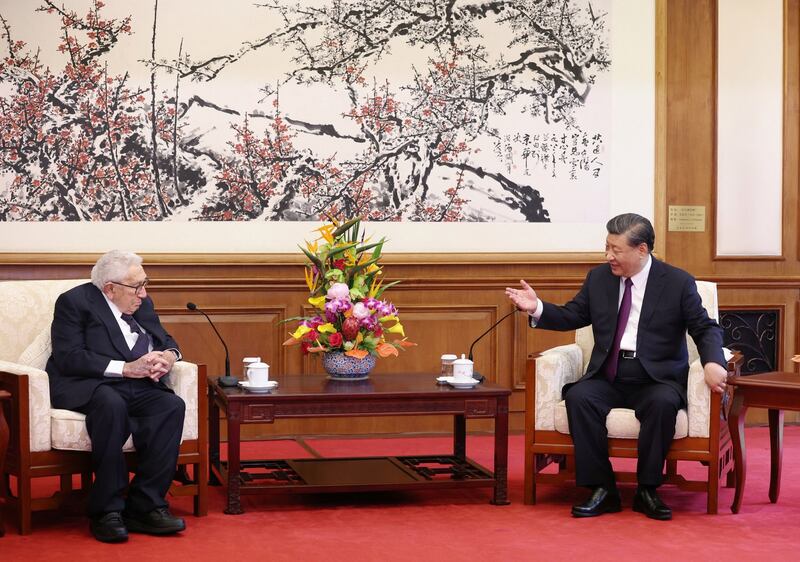Henry Kissinger, who died on Nov. 30 at the age of 100, was an influential diplomat and strategist who wielded major influence on U.S. foreign policy for more than five decades.
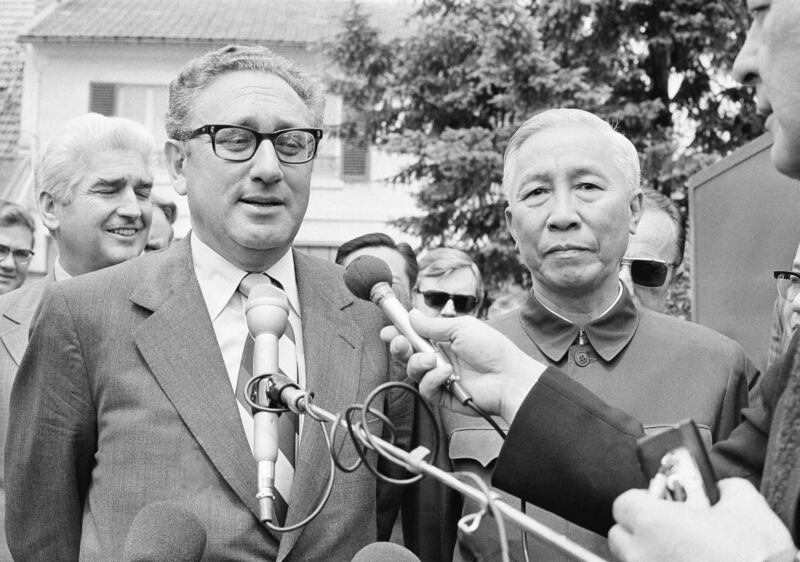
Credited for arms negotiations with the Soviet Union and shuttle diplomacy in pursuit of Middle East peace, Kissinger had a great impact on events across Asia.
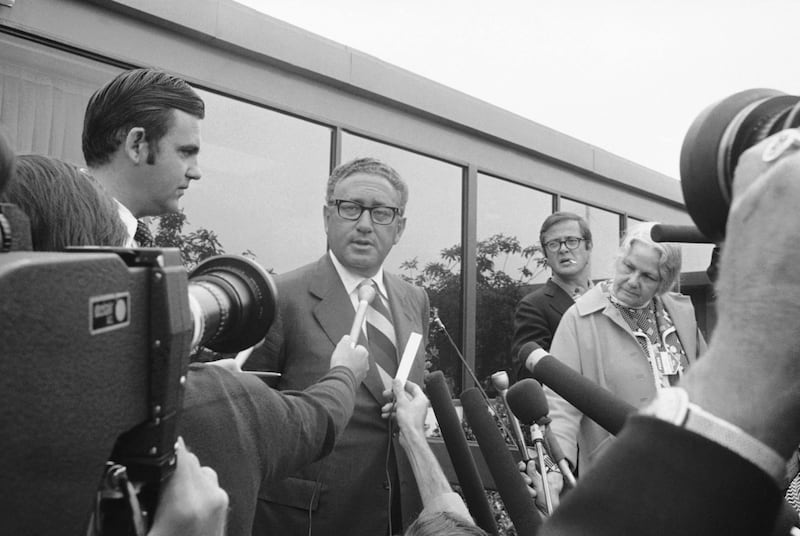
He was a central figure in President Richard Nixon’s early 1970s U.S. diplomatic opening with China and won the Nobel Peace Prize for negotiating the end of the Vietnam War.
![President Richard Nixon and Ambassador Agha Hilaly of Pakistan huddle over a newspaper account as they discuss the devastation in Pakistan, at the White House on Nov. 23, 1970. Henry Kissinger [right] is also in attendance. (AP)](https://www.rfa.org/resizer/v2/I2CKHJSF3V322IMPZ3GXHHEKNQ.jpg?auth=6a7f4a991dbe6cfa5e8cbf37a31215200943156e235fe64e1de658b0f08ff210&width=800&height=547)
Critics condemn his role in the bombing of Cambodia and Laos, his backing of Pakistan's military despite its 1971 campaign of killings and mass rape in East Pakistan, the future Bangladesh.
![U.S. Secretary of State Henry Kissinger [left], Chinese Deputy Prime Minister Deng Xiaoping and White House Chief of Staff Donald Rumsfeld admire the banquet site at the Great Hall of the People in Beijing, Nov. 25, 1974. (AP)](https://www.rfa.org/resizer/v2/IED2CHEG4GL655HUH3G65T4NTY.jpg?auth=f426ba01effb46825b6162ae5295aaffd2e25c0c87e36e0da0f1b6345ca196b7&width=800&height=549)
They say he greenlighted Indonesia's seizure of former Portuguese colony East Timor in 1975 that led to a quarter century of brutal occupation.
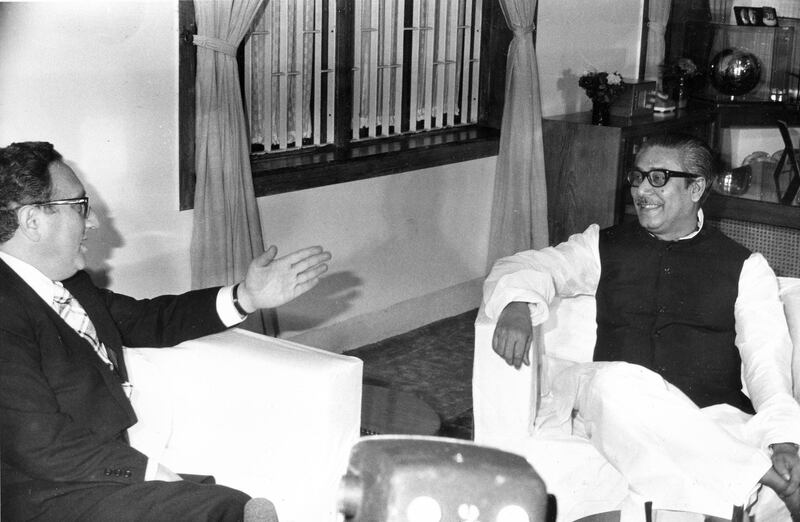
Kissinger, who served as secretary of state and national security adviser in the administrations of Presidents Richard Nixon and Gerald Ford, led arms control talks with the Soviet Union, and worked to improve relations between Israel and its Arab neighbors through intensive shuttle diplomacy.

He visited China more than 100 times, and met every leader, and advised at least 10 U.S. presidents on foreign policy.
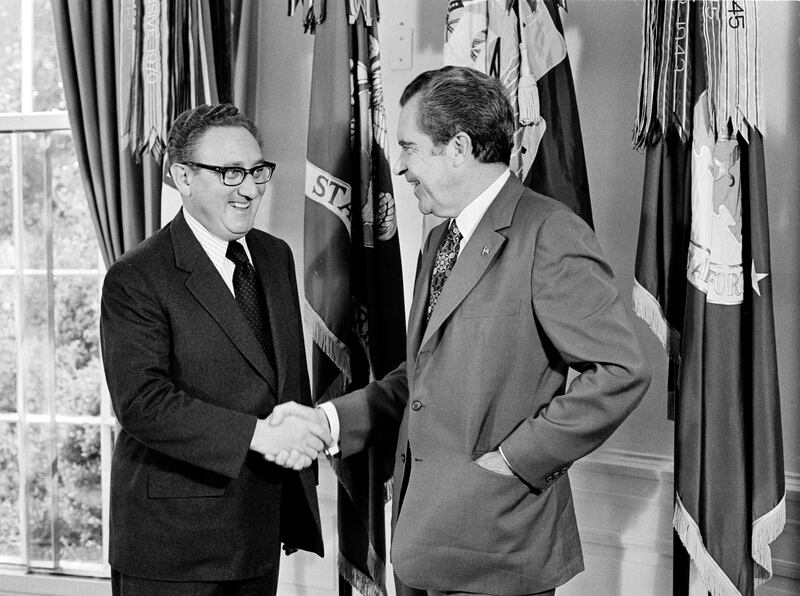
His first, secret, visit to Beijing in 1971 opened the door to diplomatic relations between China and the United States seven years later.
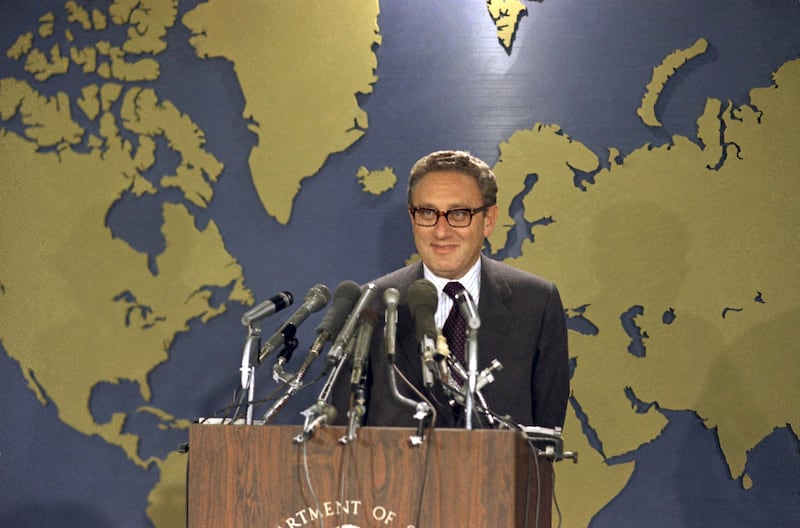
Improved U.S.-China relations gave Kissinger leverage against the the two countries' shared Cold War adversary, the Soviet Union, leading to arms control treaties between Washington and Moscow.
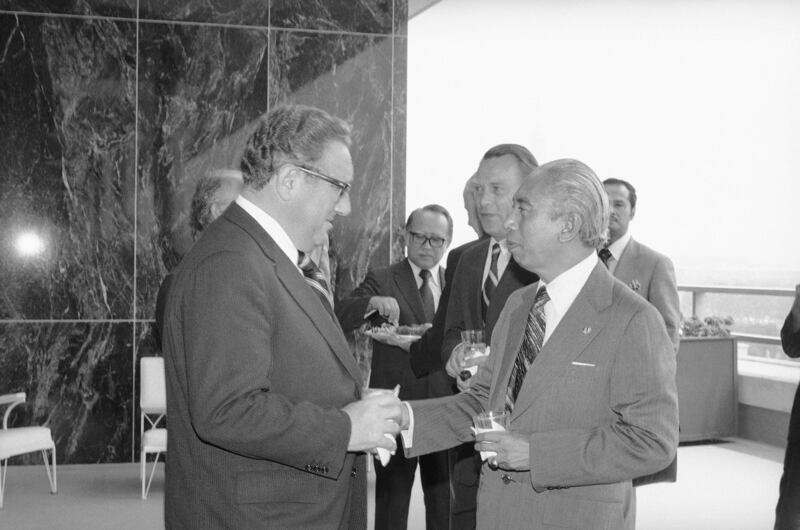
U.S. Secretary of State Antony Blinken said Kissinger’s wisdom “led presidents, secretaries of state, national security advisors, and other leaders from both parties to seek his counsel.”
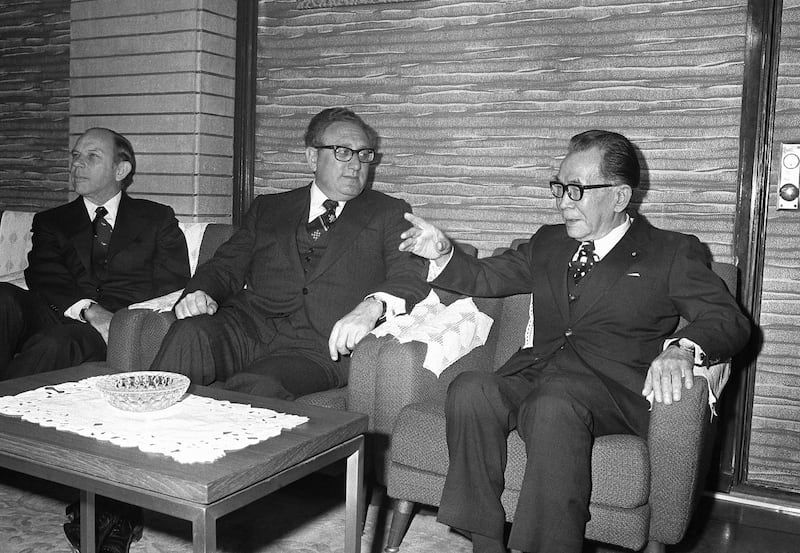
Amid widespread mourning by Chinese state media and social media users, Xi and other top leaders sent condolences to Kissinger's family.
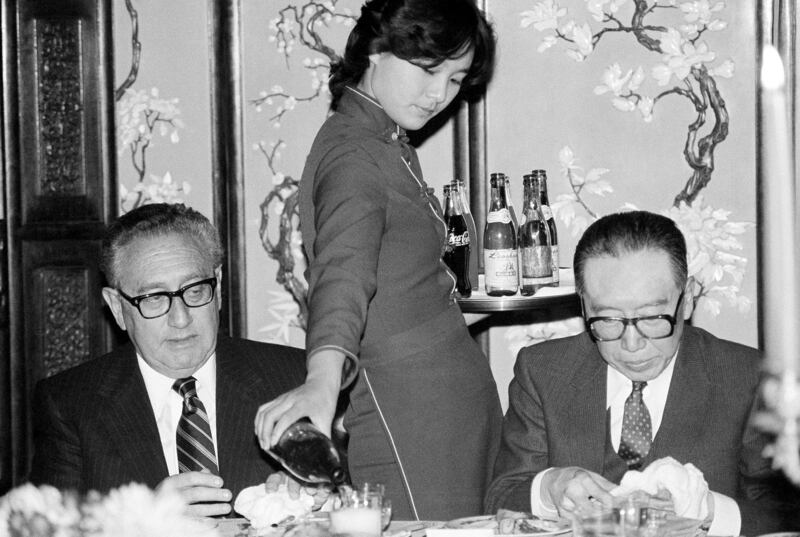
"Dr. Kissinger was a good old friend of the Chinese people. He is a pioneer and builder of Sino-U.S. relations," Chinese Foreign Ministry spokesperson Wang Wenbin said at a regular news conference.
![Presidential advisor Henry Kissinger [right] reports to President Richard Nixon [center] on his four days of talks in Paris with North Vietnam's negotiators at breakfast in the family dining room at the White House, Oct. 13, 1972. (John Duricka/AP)](https://www.rfa.org/resizer/v2/EEZGQXJRU42TDX6XD7HQASFCQI.jpg?auth=486f12bd947584112f902c29460f8a4054da54cc0a4f3e159de6f32aa80fb835&width=800&height=563)
"China and the U.S. should carry forward Kissinger's strategic vision, political courage and diplomatic wisdom... and promote the sound, stable and sustainable development of China-U.S. relations," Wang added.
Xi called Kissinger "a world-renowned strategist, and a good old friend of the Chinese people.”
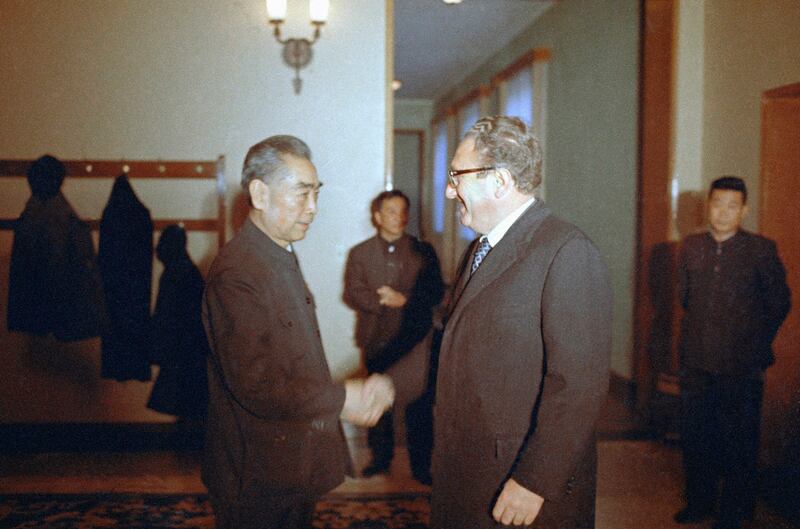
The Shanghai Communique paved the way for diplomatic normalization and trade relations between the U.S. and China.
![China's President Jiang Zemin [left] talks to former Secretary of State Henry Kissinger at a luncheon address to U.S. business groups in New York, Oct. 23, 1995. (Jim Bourg/Reuters)](https://www.rfa.org/resizer/v2/JXGWYFPPA6VXW3BBR6GUAM4HUE.jpg?auth=45cb630f1a4c94d6fe7b86b7fc7b2c9f38dec05ef732092fe821c1d39e402cc4&width=800&height=514)
His last trip to Beijing featured a meeting with President Xi Jinping in July, shortly after Kissinger’s 100th birthday.
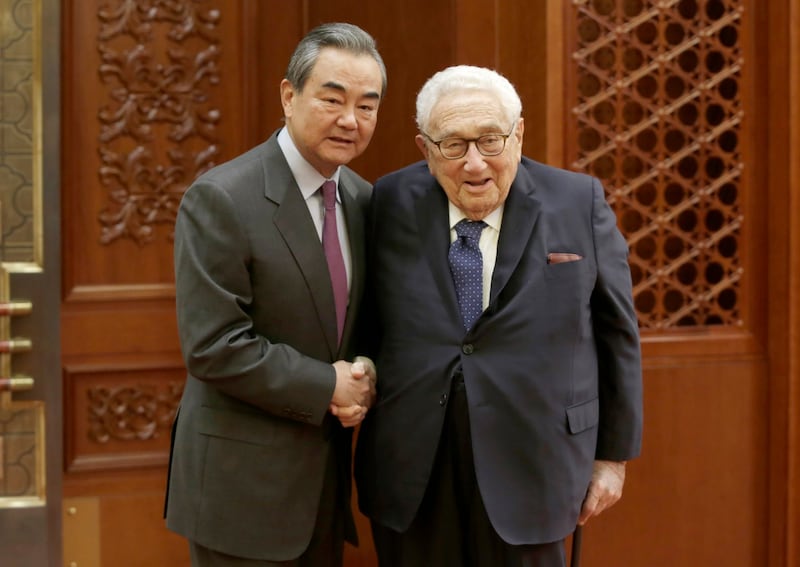
"Half a century ago, he made a historic contribution to the normalization of China-U.S. relations with brilliant strategic vision, benefiting both countries as well as changing the world,” Xi said in response to Kissinger's death.
